Pre & Post Institute Workshops & ActivitiesPre-Institute Workshops | Post-Institute Activities To enhance your Institute experience, we’re offering some exceptional, hands-on workshops to gain skills that you can take back to your school or organization. Additionally, we’re offering pre- and post-Institute social/outdoor activities to engage even more deeply with the region. Below are brief descriptions (titles, facilitators, cost and timeframes) of the various offerings. Ethical Global Engagement Track Note: To encourage participants to register for both Pre-Institute Workshops "What is Responsible Travel?" and "Cultivating Connections", which dovetail nicely with one another on Global Education, DEIB, Ethics, and Community Engagement, you will receive a package discount of $550, saving a total $150. Return to Winter Institute 2025 Page
Pre-Institute Workshops & ActivitiesBorder Immersion Experience: A Journey of Solidarity and Reflection Cost: $675 + extra funds for a few meals not included in program | Limited to 8 participants Led by Sandia Prep faculty, you are invited to join the Border Immersion Experience in El Paso, Texas. Partnering with Cristo Rey offers a unique border-issue perspective, emphasizing empathy and understanding. The goal is to recognize and celebrate communities' diversity while acknowledging their interconnectedness with all people. The main objective of this pre-Institute trip is to engage in reciprocal learning and collaboration with the resilient communities of the borderlands. The program aims to exchange ideas, experiences, and support with the participants. Throughout the program, participants will visit the border region without crossing into Mexico. They will engage in meaningful conversations with individuals affected by border policies, including visits to shelters where they can speak to family members. Additionally, there will be opportunities to share meals with refugees and dialogue with social workers, immigration officers, and other community members to gain a comprehensive perspective on immigration issues. These immersive engagements will help you understand humanity better and strengthen bonds with your neighbors. We will work towards greater empathy and solidarity in confronting the barriers communities face along the border. Attendees arrive Saturday evening by flying directly to El Paso, Texas. Sunday & Monday will be full days of the Immersion Program. On Tuesday, we’ll depart El Paso at 9:00 AM by car - it’s a four hour drive - to return to the Institute Hotel before 2:00 PM. Attendees will be staying at the Cristo Rey Church, the hosts of this powerful Border Immersion Program. Groups stay in two dorm-style rooms complete with bunks, shower facilities, towels and linens. Kitchen use and free wi-fi available. Transportation back to ABQ and on-site transportation is included; several meals are included, but participants will need to bring funds to cover a few group meals out. As the trip date approaches, each participant will receive an itinerary outlining all planned activities and events and a list of essential things to pack for this life-changing trip. Please note, participants are responsible ore one meal a day on their own, but will be taken to restaurants. Facilitator: Claudio Perez
What is Responsible Travel? The Ethics of Experiential Education Programming in Historically Marginalized Communities Cost: $300 | Limited to 24 participants This workshop provides language and tools for effectively assessing and communicating cross-cultural programming with outsiders. Based on Where There Be Dragons 30+ years of operating in remote parts of Asia, Africa, and Latin America, we share a framework for ethical community engagement practices that include assessment tools, checklists, and frameworks that can be shared with faculty, administrators, and students alike. This workshop is built from the disciplines of cultural anthropology and community engaged learning models to foster best practices in this highly complex and contested educational landscape. Topics of identity, power, privilege, social justice, reciprocity, and culture feature in this timely and dynamic exchange. Participants should expect to be facilitated through Theater of the Oppressed inspired activities, debates and conversations around service learning, community engagement, and the impacts of travel. This workshop will be particularly valuable for educators who guide students into communities that have been historically marginalized throughout the world. This workshop tackles one of the most complex debates in cross-cultural experiential impact. What's our impact? And how does our programming service the interests of our hosts? This conversation is often overlooked, or ignored due to how complicated it is, and how difficult it can be for culturally dominant voices to understand and learn from local community hosts. This is the shift from educational tourism to community immersed learning. Facilitator: Simon Hart, Where There Be Dragons
Tuesday, January 28 | 9:00 AM - 3:00 PM Cost: $400 | Limited to 20 participants Since 2011 World Leadership School has partnered with the Cochiti Pueblo to implement partnership-based community immersion programs designed to allow participants to “walk alongside” local community members. Cochiti is one of seven Keres-speaking pueblos in the Rio Grande Valley in New Mexico. During this pre-Institute session, become a student again and dive into the rich history, ongoing challenges, and future aspirations of change-makers working in and around this unique community. In the spirit of WLS’ approach to community engagement + experiential education, participants will take part in a “community adventure race'' to gain a deeper understanding of efforts to maintain cultural heritage while fostering a greater appreciation and insight that can be integrated into their professional and educational environments. This excursion is designed to spark reflection on how we as individuals and a collective society contribute to the challenges impacting this community. Participants will engage in experiences that emphasize principles of social justice such as listening and leading from a place of deep humility and connection. This workshop will take place in Peña Blanca, NM on the Cochiti pueblo, a 45 minute drive from the Institute hotel. Lunch and transportation are included in the cost. Facilitators: Jorge Gonzalez and Gerald Tafoya
Collabyrinth: Tracking Social and Emotional Development Experientially Cost: $150 | Limited to 30 participants This workshop begins by playing a game that immediately grabs the attention of students because it is challenging and fun. Workshop participants will experience the game, which is screen-free, analog, and physical in nature, in the same way students do. Then, the focus will shift to the social/emotional experiences associated with playing the game in a manner that compels behavioral awareness and modification during play. Players will come to understand how important communication and emotional control are in any collaborative problem-solving setting. Finally, we will focus on the science and mathematics opportunities that give insights into the players’ effectiveness at adopting new collaborative behaviors showing that experiential education can change our behavior in measurable ways that lead to an improved capacity to solve problems collectively. Building our capacity for collective problem solving is a requirement for meaningfully addressing social, economic, and environmental challenges. The game is called Collabyrinth and its lessons can generalize to many other forms of experiential education. Collabyrinth provides students an opportunity to experiment in working together by making a high number of decisions toward solving a constrained problem with instant feedback on the effectiveness of the collaboration. The workshop is aimed at educators seeking to connect intellectual health to emotional health. The data collection and analysis components of the workshop are easily digestible by all educators but are aimed at high-school level teachers from a curricular standpoint. Facilitator: Court Ashbaugh
Risk Management for Leaders in Outdoor, Global, and Immersive Student Programs Cost $400 | Limited to 30 participants You have a responsibility to your faculty and students to invest in risk management planning, whether you are running international or wilderness trips, or planning immersive experiences closer to home. Building a comprehensive risk management plan can feel daunting and independent schools face unique needs. This workshop will cover essential topics for any independent school leader running outdoor, international, or immersive programming and will help you identify next steps in developing your school's risk management plan. Topics include:
At NOLS, we've spent more than 58 years managing risk in wilderness environments around the world, and have worked with independent schools on expeditions, wilderness medicine, and risk management. Join us to connect and share your valuable experience with peer programs and let us share our experience and lessons learned with you. Facilitators: Liz Tuohy
World Class Winter Birding at Bosque del Apache National Wildlife Refuge Tuesday, January 28 | 8:00 AM - 3:00 PM Cost: $140 | Limited to 7 participants Enjoy an intimate bird watching experience for approximately four hours, featuring a visit to the Bosque del Apache National Wildlife Refuge visitor center and the captivating cacti garden. Witness an awe-inspiring array of avian life, including thousands of snow geese, sandhill cranes, ducks, and other waterfowl. Keep an eye out for wintering raptors such as majestic bald eagles. The tour primarily involves driving around the refuge, with opportunities to step out of the vehicle at designated stops and observation decks. Here, you can stretch your legs and search for additional wildlife, including javelina and mule deer. Facilitator: Helen Haskell
Post-Institute ActivitiesSandia Peak Aerial Tramway Cost: $30 | Limited to 25 participants Rising from the hustle and bustle of Albuquerque, you ascend one of America’s most stunning urban peaks, reaching the 10,378-foot crest of the Sandia Mountains where an 11,000 square mile panoramic view awaits. It’s an elevation of the body, mind, and soul in a mere 15 minutes. But like any meaningful journey, immerse yourself in the experience. Linger a bit to watch the sun and shadows play in the boulders as the city scape begins to twinkle below. Stroll through serene and aromatic fir and aspen forests. Clink glasses as you unwind with warm conversation and a taste of something New Mexico true at the TEN 3 Restaurant. You have arrived in a place all its own, high above the daily grind. *At this elevation, weather can change quickly; be sure to come dressed prepared. Transportation to/from the tram is provided. Unofficial Post-Institute Celebration at Sidetrack Brewing Cost: Free | Unlimited attendees Unwind in downtown Albuquerque at Sidetrack Brewing, just a 12 minute walk from the Institute Hotel. Sidetrack’s mission is simple: brewing great beer and serving it in a great setting. Their 7 barrel brewery, cozy taproom and spacious patio occupy a 1940s commercial property on the quiet southern edge of Albuquerque's downtown. Drinks & food are on your own tab this evening, and there are restaurants and shopping within a few blocks. Flyby Provisions will be offering an exclusive shopping experience in their store next to the brewery. Flyby is a gift store that carefully curates a broad selection of local goods. Mountain Biking the Sandia Foothills Saturday, February 1 | 12:00 PM - 4:30 PM Cost: $150 | Limited to 10 participants Come join us as we explore the excellent mountain biking opportunities that exist in Albuquerque’s Foothills. This session will be led by local mountain bikers, Sarah Council and Mike Hanselmann, who are also part of the Albuquerque Academy’s Experiential Education department. The curriculum in the Academy’s Ex-Ed department includes a semester-long mountain bike class. The course includes skill work at the Academy’s pump track as well as forays into the foothills to explore the amazing trails Albuquerque offers. In this workshop, Sarah and Mike will go over some helpful drills to use for your riding and instruction and take a ride on the flowy foothill trails. The ride will be suitable for beginning and intermediate riders. Sarah and Mike will also assist in renting bikes and other essential gear. Facilitators: Sarah Councell and Mike Hanslemann, Albuquerque Academy Wilderness First Aid / NOLS Wilderness First Responder Recertification Saturday, February 1 - Sunday, February 2 Cost: $295 Separate registration from Winter Institute | Sharing on behalf of our friends at Albuquerque Academy and National Outdoor Leadership School Prepare for the unexpected with this engaging, hands-on introduction to wilderness medicine, taught over two or two and a half days. If you like to take short trips relatively close to medical resources, work at wilderness camps, enjoy weekend family outdoor activities, or recreate outdoors, this course is for you. NOLS graduates may also take a NOLS Wilderness First Aid (WFA) course or a NOLS Wilderness Advanced First Aid course (WAFA) to recertify their WAFA, WFR or WEMT. The Wilderness First Aid course is an introductory course for individuals with no prior knowledge and generally does not include CPR. To recertify a WFR using the WFA or WAFA you must pass both written and practical exams. Learn More and Register
Return to Winter Institute 2025 Page |
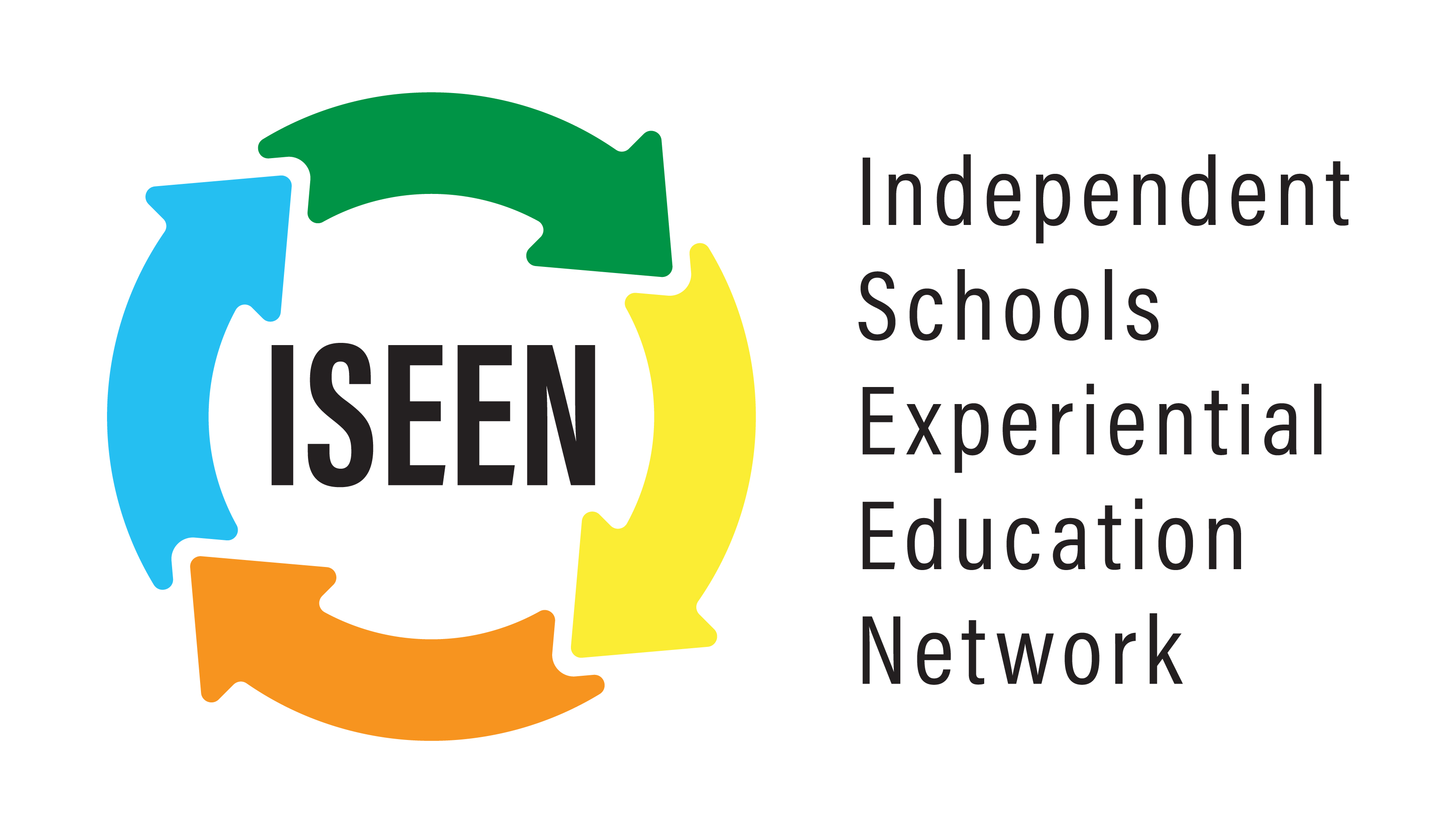
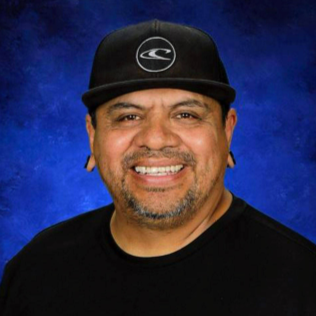 Claudio Perez
Claudio Perez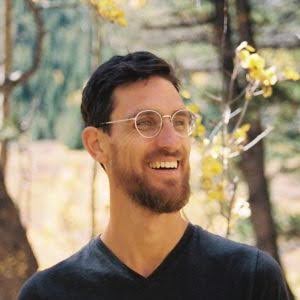 Simon's journey from a small-town boy to an international educator has been fueled by his passion for discovery and cross-cultural experiences. With a background in anthropology and development, he has dedicated close to two decades to creating and leading experiential learning programs across the globe. At Dragons, he has served various roles, including Executive Program Director, and now focuses on global studies professional development. An alumnus of SIT and Carleton College, Simon is also a multilingual WFR-certified adventurer, committed to inspiring others to explore and connect with the world, whose personal mission is to “get people out there” to discover a deeper notion of self in relation to others.
Simon's journey from a small-town boy to an international educator has been fueled by his passion for discovery and cross-cultural experiences. With a background in anthropology and development, he has dedicated close to two decades to creating and leading experiential learning programs across the globe. At Dragons, he has served various roles, including Executive Program Director, and now focuses on global studies professional development. An alumnus of SIT and Carleton College, Simon is also a multilingual WFR-certified adventurer, committed to inspiring others to explore and connect with the world, whose personal mission is to “get people out there” to discover a deeper notion of self in relation to others.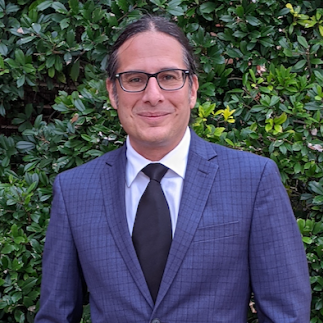 Jorge is the youngest of six children and dedicates his work to each of them and his parents for their love, support and sacrifices they made for him. With two decades of experience in leadership development and social justice education, Jorge’s work has impacted youth and adults across five continents. His nonprofit work spans behavioral health, community development, and strategic planning, emphasizing community inclusion and partnership cultivation. Currently, Jorge is advancing his expertise with a graduate degree in Community and Regional Planning, focusing on community development and social justice. He balances his professional endeavors with personal growth activities like reading, meditation, and outdoor sports. Jorge is a long-standing World Leadership School instructor and has been instrumental in the Cochiti Pueblo + WLS partnership.
Jorge is the youngest of six children and dedicates his work to each of them and his parents for their love, support and sacrifices they made for him. With two decades of experience in leadership development and social justice education, Jorge’s work has impacted youth and adults across five continents. His nonprofit work spans behavioral health, community development, and strategic planning, emphasizing community inclusion and partnership cultivation. Currently, Jorge is advancing his expertise with a graduate degree in Community and Regional Planning, focusing on community development and social justice. He balances his professional endeavors with personal growth activities like reading, meditation, and outdoor sports. Jorge is a long-standing World Leadership School instructor and has been instrumental in the Cochiti Pueblo + WLS partnership.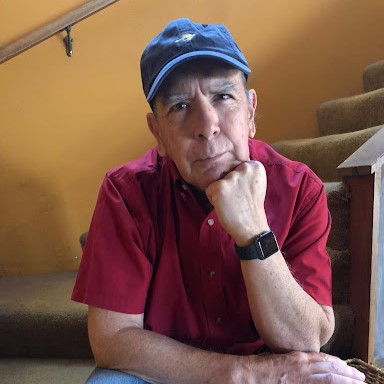 Gerald Tafoya is a longtime educator at Cochiti School in Peña Blanca, New Mexico who has made a significant impact in his educational community. In addition to teaching, Gerald wears multiple hats, serving as a mentor, coach, and administrator as well as the community coordinator for the WLS New Mexico program in partnership with the community members of Cochiti Pueblo. Gerald is a recipient of the prestigious Golden Apple Award, a recognition of his excellence in teaching and dedication to his students. Before transitioning to the classroom, Gerald spent 20 years working with youth in difficult situations, bringing a wealth of experience and empathy to his current role. His holistic approach to education emphasizes not just the academic development of his students but also their overall well-being. Gerald believes in the power of education to transform lives, stating, "Teaching is not just about the subject, but about making a positive impact on students' lives." His commitment and multifaceted contributions make him a standout figure in the field of education.
Gerald Tafoya is a longtime educator at Cochiti School in Peña Blanca, New Mexico who has made a significant impact in his educational community. In addition to teaching, Gerald wears multiple hats, serving as a mentor, coach, and administrator as well as the community coordinator for the WLS New Mexico program in partnership with the community members of Cochiti Pueblo. Gerald is a recipient of the prestigious Golden Apple Award, a recognition of his excellence in teaching and dedication to his students. Before transitioning to the classroom, Gerald spent 20 years working with youth in difficult situations, bringing a wealth of experience and empathy to his current role. His holistic approach to education emphasizes not just the academic development of his students but also their overall well-being. Gerald believes in the power of education to transform lives, stating, "Teaching is not just about the subject, but about making a positive impact on students' lives." His commitment and multifaceted contributions make him a standout figure in the field of education.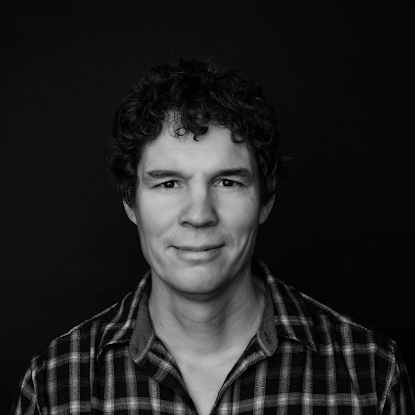 Court currently teaches senior level mathematics and physical science courses at Coast Mountain Academy in Squamish, British Columbia. He has had a long-term interest in experimenting with various forms of experiential learning and is interested in refining the definition of this term to ensure educators can engage Ex Ed meaningfully and with a specific set of intentions. A driving force behind his teaching and research efforts relates to how humanity can address existential problems like climate change. The Collabyrinth project is his way of exploring how to get students (and hence any pair of humans) working together on a common challenge. While Court is fully invested in the scientific understanding of all large-scale human problems, he believes that science alone cannot give us the capacities to work together meaningfully. Having young people engage with each other cooperatively on small problems is requisite to having leaders cooperate on large ones.
Court currently teaches senior level mathematics and physical science courses at Coast Mountain Academy in Squamish, British Columbia. He has had a long-term interest in experimenting with various forms of experiential learning and is interested in refining the definition of this term to ensure educators can engage Ex Ed meaningfully and with a specific set of intentions. A driving force behind his teaching and research efforts relates to how humanity can address existential problems like climate change. The Collabyrinth project is his way of exploring how to get students (and hence any pair of humans) working together on a common challenge. While Court is fully invested in the scientific understanding of all large-scale human problems, he believes that science alone cannot give us the capacities to work together meaningfully. Having young people engage with each other cooperatively on small problems is requisite to having leaders cooperate on large ones.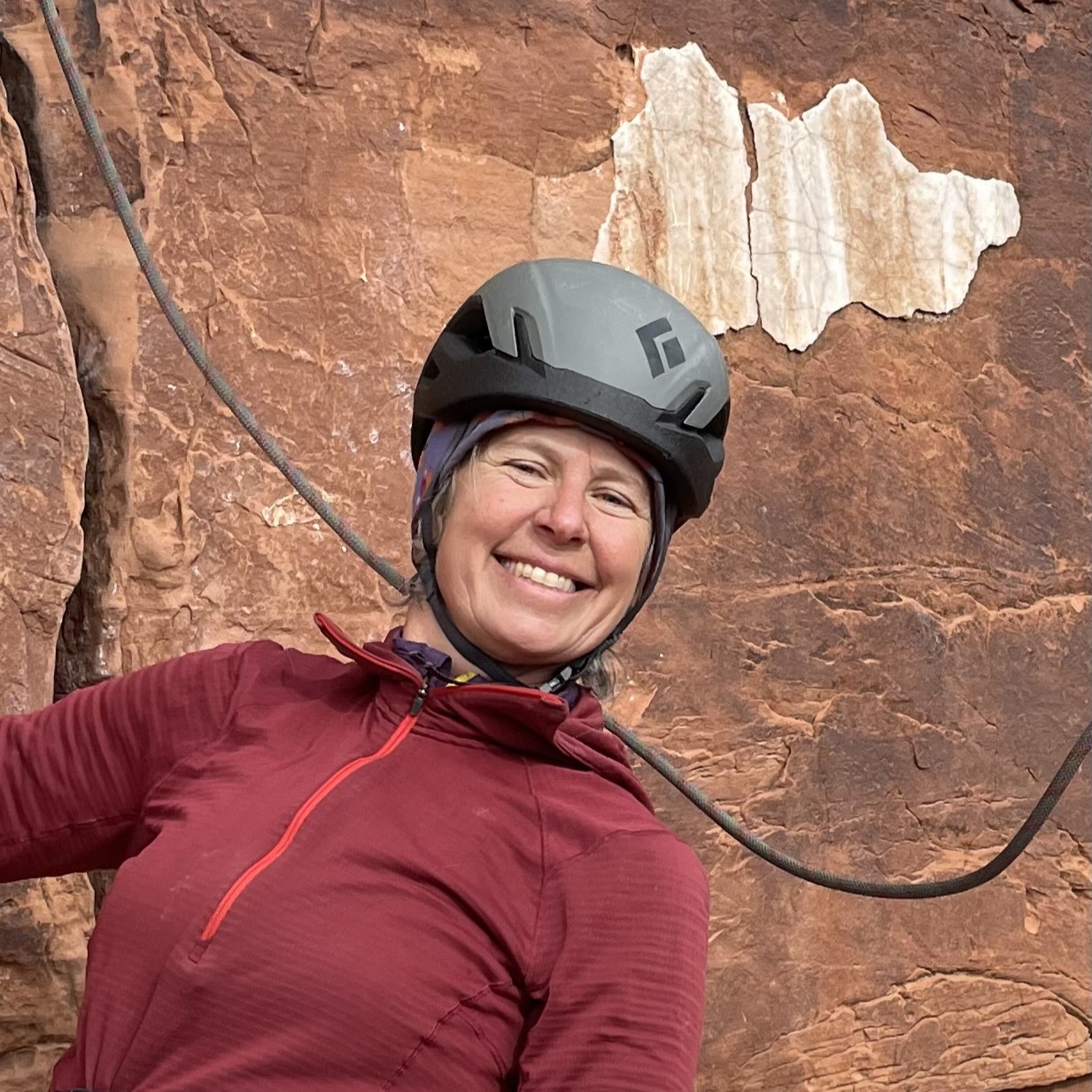 Liz Tuohy has served at NOLS for over thirty years. Driven to help youth build the capacity to navigate the challenges and uncertainties of our changing world, she believes that secondary school wilderness expeditions and international travel programs, when done well, are exceptional capacity builders. At NOLS she has worn many hats. As the Rocky Mountain Program Manager she was responsible for supervising roughly 250 instructors per year in risk management and educational outcomes. As the Expedition and Leadership Education Director, she oversaw systems and policies to support student outcomes, curriculum, and behavioral management for domestic and international expeditions for roughly 3000 students a year. As the Senior Risk Management Consultant, she supported outdoor and international studies programs in their risk management and emergency/crisis response plans. Most recently she spent a year as NOLS' Interim VP of Expeditions, supporting the school as it navigated a complete leadership transition, financial crisis, and layoffs. In addition to being NOLS faculty, she is currently a somatic coach.
Liz Tuohy has served at NOLS for over thirty years. Driven to help youth build the capacity to navigate the challenges and uncertainties of our changing world, she believes that secondary school wilderness expeditions and international travel programs, when done well, are exceptional capacity builders. At NOLS she has worn many hats. As the Rocky Mountain Program Manager she was responsible for supervising roughly 250 instructors per year in risk management and educational outcomes. As the Expedition and Leadership Education Director, she oversaw systems and policies to support student outcomes, curriculum, and behavioral management for domestic and international expeditions for roughly 3000 students a year. As the Senior Risk Management Consultant, she supported outdoor and international studies programs in their risk management and emergency/crisis response plans. Most recently she spent a year as NOLS' Interim VP of Expeditions, supporting the school as it navigated a complete leadership transition, financial crisis, and layoffs. In addition to being NOLS faculty, she is currently a somatic coach.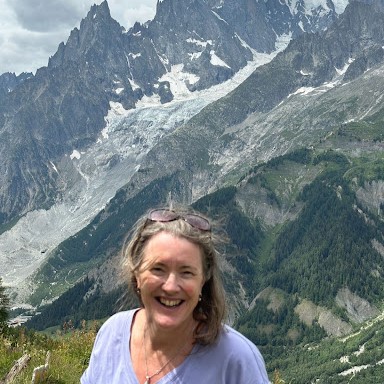 Helen Haskell, an educator with a passion for outdoor learning, has been teaching geoscience and outdoor leadership at Sandia Preparatory School since 2004. With roots in the UK, she embraces the natural landscapes of the southwest to teach the stories they hold. Helen is a Fulbright Teachers for Global Classrooms alumna, a Teacher at Sea, and holds a MA in Education from the University of New Mexico, where she also instructs a summer field ecology class at Sevilleta National Wildlife Refuge.
Helen Haskell, an educator with a passion for outdoor learning, has been teaching geoscience and outdoor leadership at Sandia Preparatory School since 2004. With roots in the UK, she embraces the natural landscapes of the southwest to teach the stories they hold. Helen is a Fulbright Teachers for Global Classrooms alumna, a Teacher at Sea, and holds a MA in Education from the University of New Mexico, where she also instructs a summer field ecology class at Sevilleta National Wildlife Refuge.